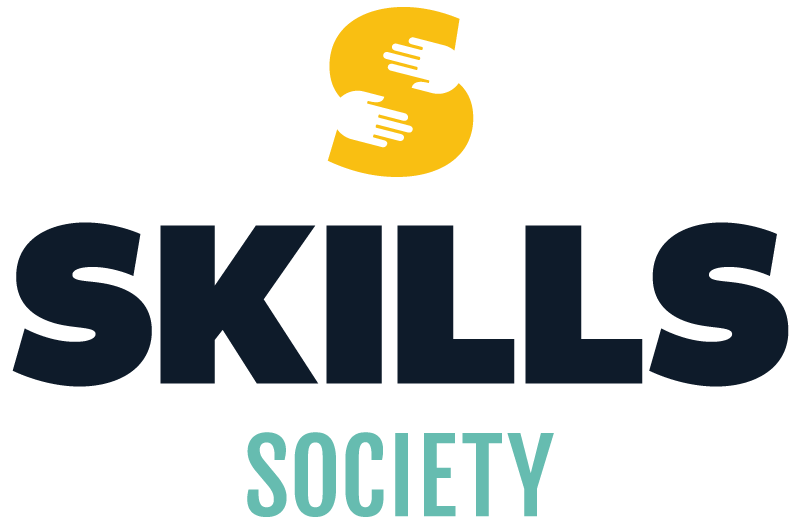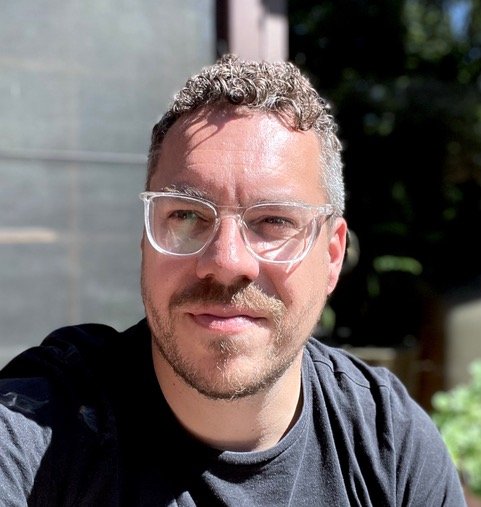Executive Director Report 2021-2022
Good enough isn’t enough: never settling - striving for the ‘good life’
On behalf of the Skills Society team, I’m pleased to share our 41st Annual AGM Report with you. As we reflect on the incredible history of this organization, I think it’s fair to say the last few years have been some of our most tumultuous.
The near constant rollercoaster of uncertainty, stress, fear, sickness, and isolation from one another has been overwhelming. With every glimmer of optimism that the pandemic might be ending, new worries over variants, vaccination boosters and division seem to creep back in. This is still tough on everyone and the uncertainty will likely continue a bit longer. As a community, we are learning to live with this virus as safely as possible, slowly rekindle our lost connections and live the best lives we can – however that may look like for each person! While the pandemic has challenged us all in new and difficult ways, it has also shown our strength and resilience as a community. For example, I was often blown away by employees’ selflessness to stand by people we serve as we struggled with staffing models due to the virus. I also heard many stories of people we support comforting Skills community members and being there for one another. It was heartwarming and I’m sure made us all proud. It provided some deeper conviction that whatever comes our way we have strength as a community together-If we remember to see our shared humanity, don’t lose compassion and look out for each other shoulder to shoulder.
Sincere gratitude to our whole Skills family for exemplifying the kindness and care we all need in the world.
Self-advocates and allies from Skills Society came together to film a short video sharing the history and legacy of the Rights We Want!.
A common link in our collective work
Last fall the senior leadership team of Skills had a short retreat to reflect, assess the current state of Skills and imagine what the future looks like for our organization. To help see beyond our silos, the team read and reflected on a short book by Seth Godin called Tribes. This book explores patterns and principles for what helps humans unite and work together on shared visions and movement making. Its themes resonated powerfully as we reflected on our shared vision, values, and how to support deeper belonging and engaged citizenship. Perhaps the most impactful principle was the unifying connection between creative change-makers that often drives large-scale movements. Godin demonstrated that it is often a common, simple and powerful idea that drives people to work collectively towards a clear outcome.
At Skills, we’ve often struggled with grasping the common idea that unites us all and the energy required to make progress together. Our desire to not oversimplify our values or vision, and instead dig deeper to create lasting change, has created a unique set of challenges. We gladly embrace complexity – and as a result there is rarely a simple, single idea that drives us forward. Our leadership reflected on Godin’s thinking and how we might apply it to our collective work of making sure people with developmental disabilities have every opportunity to live ‘the good life.’
Challenging a ‘good enough’ mindset
This exercise prompted me to think about my own journey in disability rights advocacy and the common patterns throughout the history of justice movements in Alberta. The common purpose that seemed to unite the leaders, organizations and grassroots communities that made the most positive change were the ones that had an unshakeable conviction that good enough wasn’t good enough. As obstacles, challenges, and “ya buts” would arise, the real change makers were often the ones who would not settle and would keep creatively figuring out ways to support people to have every opportunity that any other citizen is afforded. These change makers and leaders were often ordinary family members who shared their lives with a loved one with a disability, or they were passionate self-advocates, or front-line support persons who just kept going, no matter the barriers.
So, when we think about the common energy and spark that unites us all in the Skills community – both past and present – it’s this energy and conviction to never settle for good enough.
If we trust this as a core unifying spirit behind our work, an instinct we can all relate to, it makes it easier to ask ourselves:
“Are we sure we’ve done enough to help people have really good lives and be their best selves in the world?
Are there places or circumstances where we may have settled for good enough because it got too hard?
What do I need to spark or re-ignite not settling and to keep going to support the good lives of the people we serve?”
Systems of settling for good enough
Settling for good enough can happen to anyone in life and it is tough to keep trying, learning and become the best version of ourselves for the world. For people with developmental disabilities we serve, historically there often have been too many systems and experts telling people that their life is good enough and to be happy with what there is. As a result, often people have a hard time imagining what the good life means in their own way when they’re asked. Often repeated disappointments also cause people to give up and just settle. Everyone in our Skills family I think can empathize with this and I think will recognize we often need trusted supports in our corner when repeated disappointments can cause us to settle for good enough. Whether we have a disability or not, all people at times need support to help us see our potential, imagine possibilities and figure out ways of how we want to show up in the good life and feel we belong for who we are. We need to remember that people we serve might not always be asking to explore further what living the good life might be and might just have settled because it was too hard to go against the grain. As good allies and supports, part of our role is to be tuned to this and help people explore, learn, grow and imagine the good life. This isn’t a once-a-year thing in a planning meeting, but should be reflected on regularly with people. This is not easy, but the energy once again is a motivation and mindset that we shouldn’t settle, that we see good qualities and gifts in everyone and we will keep helping people to live their lives to fullest potential - in whatever way that makes sense for a particular person.
In 2020 we updated our Vision, Mission, Values, Engaged Citizenship model, and our Thrive In Five principles in order to focus our work and clarify our purpose. These beautiful ideas will continue to form the backbone of our commitment to the people we serve, but my hope is that as we reflect on this year’s report and its stories, we come away with an even stronger conviction to never settle and continue asking questions like…
Have we settled for ‘good enough’ in supporting people to find their gifts and ways to contribute?
Have we settled for ‘good enough’ in supporting people to build lasting connections, friendships and a deeper sense of belonging?
Have we settled for ‘good enough’ in supporting a positive home life, healthy relationships, employment possibilities, health and wellness, and strong community connections?
What is my role in supporting the ‘good life’ and not settling?
What is the good life? What is it for myself? What might it be for others? How can we help each other be our best selves and live our best lives possible?
Exploring what the ‘good life’ is remains one of the big questions of what it means to be human. It’s never static. For people with developmental disabilities, this question is rarely explored and too often others wrongfully determine what the ‘good life’ is for someone else.
I invite you to join us in embracing this simple idea – that we won’t settle for good enough when helping people with disabilities live the fullest lives possible. This is the conviction that will keep us moving forward with our vision of a community where everyone belongs and all are treated with dignity and respect.
Ben Weinlick,
Executive Director






